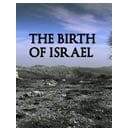
Israel: Birth of a State
The idea about a Jewish state can be traced back to the Austro-Hungarian Jewish journalist and political activist, Theodor Herzl. Despite initial opposition and skepticism, Herzl chaired the first Zionist congress in 1897, and Palestine was selected to be a Jewish national home by the 7th Zionist Congress in 1905. Early immigration waves to Palestine led to conflicts in Arab-Jewish relations, reaching a peak before World War I.
World War I redefined the Middle East, and the Sykes-Picot Agreement assigned Palestine to the British. The Balfour Declaration in 1917 promised a Jewish national home, but by 1919, Palestinians constituted 98% of the population. Anti-Jewish unrest flared in 1920 and 1921. Winston Churchill's 1922 White Paper clarified British intentions to limit the Jewish immigration to Palestine, and the 1929 riots over the Western Wall and Al-Aqsa mosque resulted in casualties.
The rise of the Nazis in 1933 prompted Jewish persecution in Germany, leading to significant migration to Palestine between 1933 and 1939. Tel Aviv thrived, with its population tripling and new businesses emerging. David Ben-Gurion assumed the role of Jewish Agency chairman in 1935, leading Haganah, a Jewish paramilitary organization in Palestine, against British restrictions. The Arab Revolt of 1936, opposing Jewish immigration and land sales, resulted in numerous casualties.
Amin al-Husseini, the pro-Nazi Grand Mufti, sought an alliance with Hitler. British policies in 1939 limited Jewish immigration, impacting Holocaust survivors. During World War II, Ben-Gurion supported Britain while establishing a Jewish Brigade. Post-war, Holocaust survivors faced challenges as Britain blocked immigration. In 1947, the UN proposed Palestinian partition, and Britain decided to end its mandate. The Exodus 1947 ship, carrying Holocaust survivors to Palestine, faced British intervention, triggering international outrage and influencing the UN's decision.
Following active involvement in the UN Declaration of Human Rights, France, influenced by Chaim Weizmann, played a role in garnering support for the partition. Truman's pressure, promising loans to the Philippines and Haiti, shifted the stance of smaller nations during Thanksgiving. Unexpectedly, Soviet Foreign Minister Gromyko delivered a pro-Zionist speech, leading to the 1947 UN vote in favor of the partition.
Despite this, most Palestinian Arabs and neighboring states rejected the plan, escalating tensions into the Arab-Israeli War post-partition. Expulsions, massacres, and the implementation of Plan Dalet shaped the post-1948 landscape, leading to Arab-Israeli conflict and refugee crises. The UN, largely indifferent, provided minimal assistance, with the international community's focus primarily on the massive displacement in post-war Europe, overshadowing the plight of Palestinian refugees.
Directed by: William Karel, Blanche Finger



